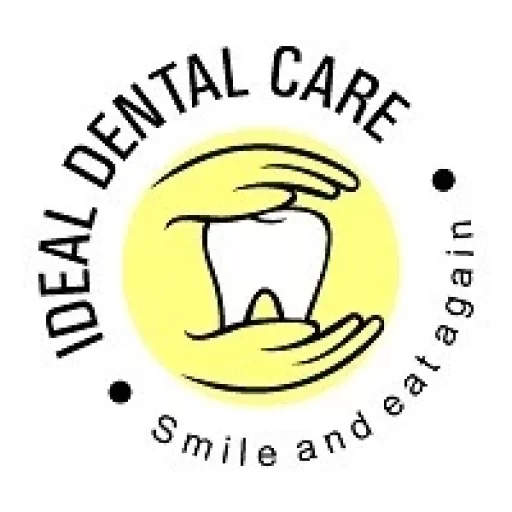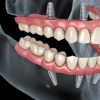What’s better: Dental Implants or Dental Bridges?
Welcome to our comprehensive guide on choosing between dental implants and bridges for tooth replacement. As an expert in implant dentistry Ideal Dental Care is here to help you understand the key differences between these two popular options: dental implants and bridges.
Tooth loss is a common issue affecting a significant portion of the adult population. Whether due to injury, decay, or other factors, it’s crucial to find an effective tooth replacement to preserve oral health and aesthetics.
We’ll explore their pros and cons, compare their benefits, discuss the factors influencing your choice, and look at alternative options. By the end of this blog, you’ll clearly understand which dental solution suits your needs best.
Dental Implants vs. Bridges
Both dental implants and bridges are excellent options for tooth replacement, but they work differently. Let’s start by understanding what each of these dental treatments entails.
Dental Implants
Implants in Dentistry are advanced, permanent tooth replacement solutions. They consist of a titanium post (screws) surgically inserted into the jawbone, acting as the root for a replacement tooth. These implants for teeth are renowned for their stability, longevity, and natural appearance, making them one of the best implant options available today. Patients often appreciate dental implants for their ability to look, feel, and function like natural teeth.
Bridges
A dental bridge is a permanent dental treatment that fills the space left by one or more missing teeth. It is made up of two or more crowns on either side of the gap, with an artificial tooth (pontic) in between. The crowns are affixed to the normal teeth in order to support the pontic, thereby “bridging” the gap.
Pros and Cons: Implants vs. Bridges
Pros
The table highlights the advantages of dental implants and bridges for tooth replacement. It compares aspects like durability, cost, aesthetics, and impact on adjacent teeth, aiding informed decisions.
IMPLANTS | BRIDGES |
High success rate and long-term durability. | Provides a fixed, non-removable solution for tooth replacement. |
Prevents bone loss by stimulating the jawbone and maintaining facial structure. | Faster treatment time compared to dental implants. |
No impact on adjacent healthy teeth, preserving their integrity. | It can be a suitable option when the adjacent teeth have large fillings or need crowns. |
Easy to maintain, requiring regular brushing and flossing like natural teeth. | Cost-effective initially but may require replacement over time. |
Offers a natural-looking and feeling tooth replacement |
Cons
The table outlines the drawbacks of dental implants and bridges for tooth replacement, including costs, surgical procedures, potential bone resorption, and maintenance considerations. Make informed choices with this helpful comparison.
IMPLANTS | BRIDGES |
More expensive upfront but cost-effective in the long run due to longevity. | Involves grinding down healthy adjacent teeth for crown placement, which may weaken them. |
Requires a surgical procedure for implant placement. | This may lead to bone resorption under the pontic, affecting facial aesthetics. |
The process may take several months, including healing and integration time. | Higher chances of tooth decay due to difficulties in flossing under the bridge. |
How to Choose Between an Implant and a Bridge?
The decision between a dental implant and a bridge depends on various factors, including
- Oral Health Condition: The overall health of your mouth and adjacent teeth play a vital role in determining the right option. If you have healthy adjacent teeth and a strong jawbone, a dental implant might be the preferred choice.
- Long-Term Goals: Consider your long-term dental goals. Dental implants are a permanent solution and require less maintenance in the long run, while bridges may need replacement after a certain period.
- Budget: Dental implants tend to have a higher initial cost, so a bridge might be a more affordable option if budget constraints are a concern.
- Timeframe: Dental implants usually take longer to complete as they involve a healing period. If you need a quicker solution, a bridge might be preferable.
- Aesthetics: If having a natural appearance is crucial to you, dental implants closely mimic real teeth and may be the better choice.
Other Options Instead of Bridges or Implants
Apart from dental implants and bridges, there are alternative tooth replacement options to consider, depending on your specific needs:
- Dentures: Removable dentures are an option if you have multiple missing teeth and want a more cost-effective solution.
- Resin-Bonded Bridge: This type of bridge is fitting for replacing teeth and requires minimal alteration of adjacent teeth.
- Flipper: A temporary, removable acrylic tooth can be used as an interim solution while considering permanent options.
Take Away
Choosing between a bridge and a dental implant involves considering various factors such as oral health, long-term goals, budget, and aesthetics. Dental implants offer exceptional stability and natural appearance, while bridges provide a fixed solution with a faster treatment time. Consulting a qualified implant dentistry near me professional is essential to making an informed decision.
Ultimately, your unique circumstances and preferences depend on the best implant or bridge for you. To determine the most suitable option, consult with your dentist and consider their expert advice. Remember, a well-chosen tooth replacement can enhance your smile, improve oral function, and boost your confidence for years to come. Visit Ideal Dental Care today!




